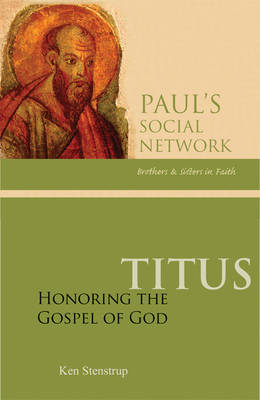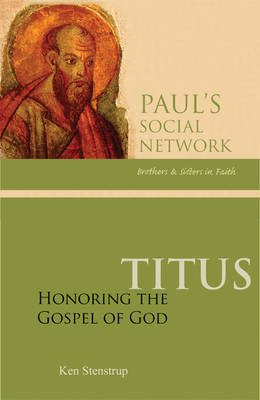
- Retrait gratuit dans votre magasin Club
- 7.000.000 titres dans notre catalogue
- Payer en toute sécurité
- Toujours un magasin près de chez vous
- Retrait gratuit dans votre magasin Club
- 7.000.0000 titres dans notre catalogue
- Payer en toute sécurité
- Toujours un magasin près de chez vous
Description
Human beings are embedded in a set of social relations. A social network is one way of conceiving that set of relations in terms of a number of persons connected to one another by varying degrees of relatedness. In the early Jesus group documents featuring Paul and coworkers, it takes little effort to envision the apostle's collection of friends and friends of friends that is the Pauline network. The persons who constituted that network are the focus of this set of books. For Christians of the Western tradition, these persons are significant ancestors in faith. While each of them is worth knowing by themselves, it is largely because of their standing within that web of social relations woven about and around Paul that they are of lasting interest. Through this series we hope to come to know those persons in ways befitting their first-century Mediterranean culture.
Paul's network is a complex collection of people, many of whom receive only the slightest acknowledgment in the New Testament. While Titus receives more than a cursory mention, the writings that include him come from different generations of Jesus followers. In Titus: Honoring the Gospel of God, Ken Stenstrup makes the distinction between these generations of writings and, by employing social-scientific methods, uses Titus to shed light on Paul as a change agent and leader. As one of Paul's coworkers, Titus provided stability and guidance to early Jesus groups. He was welcomed by these groups and reported their hospitality toPaul. Stenstrup emphasizes the collectivistic culture of the first century and explains how this influenced the relationships betweenPaul, Titus, and the early Jesus groups.
Ken Stenstrup teaches a variety of introductory level Scripture courses at Saint Mary's University of Minnesota. For several years he has been a member of the Social Sciences and New Testament Interpretation task force of the Catholic Biblical Association.
Spécifications
Parties prenantes
- Auteur(s) :
- Editeur:
Contenu
- Nombre de pages :
- 136
- Langue:
- Anglais
- Collection :
Caractéristiques
- EAN:
- 9780814652879
- Date de parution :
- 01-01-10
- Format:
- Livre broché
- Format numérique:
- Trade paperback (VS)
- Dimensions :
- 137 mm x 206 mm
- Poids :
- 158 g

Les avis
Nous publions uniquement les avis qui respectent les conditions requises. Consultez nos conditions pour les avis.






